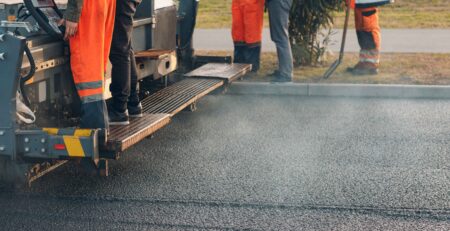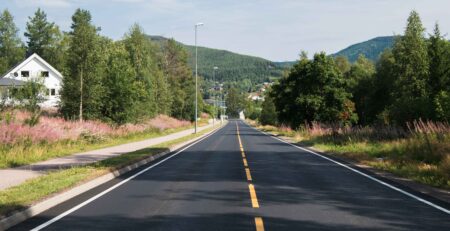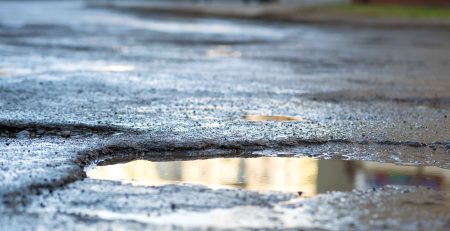Road Surfacing for UK Weather: Choosing the Right Material for Every Season
The UK’s unpredictable weather can pose unique challenges for road surfacing projects. Hot summer temperatures can soften asphalt, while cold winters can cause cracks and potholes through freeze-thaw cycles. Choosing the right surfacing materials and techniques is essential to ensure durability, safety, and long-term performance.
In this article, we’ll explore how different weather conditions affect tarmac and asphalt, share tips for season-specific surfacing, and explain how Total Surfacing ensures road surfaces remain strong and reliable all year round.
How Weather Affects Road Surfaces
- Cold Weather
- Low temperatures can make tarmac brittle.
- Freeze-thaw cycles cause water to expand in cracks, leading to potholes and surface degradation.
- Sub-zero temperatures require careful material selection and sometimes delayed installation to prevent premature damage.
- Hot Weather
- High temperatures soften asphalt, increasing the risk of rutting under heavy traffic.
- Prolonged heat can cause expansion, leading to surface irregularities and cracking.
- Sun exposure may accelerate oxidation, making the surface harder and more brittle over time.
Choosing the Right Surfacing for UK Conditions
- Tarmac with polymer additives: Improves flexibility in cold weather and resistance to rutting in heat.
- Layer thickness adjustments: Thicker base layers help resist frost heave and traffic load damage.
- Sealcoating: Protects surfaces from UV degradation and water penetration.
- Proper compaction: Essential in all seasons to ensure a smooth, durable surface.
Seasonal Installation Tips
- Winter: Avoid surfacing during extreme cold or when frost is present. Use additives and flexible mixes.
- Summer: Schedule work during cooler parts of the day if temperatures soar. Ensure proper compaction before the surface cools too rapidly.
- All Seasons: Always plan drainage and water runoff management to prevent long-term damage.
How Total Surfacing Handles Weather Challenges
At Total Surfacing, we adapt our road surfacing techniques to the UK’s variable weather. Our approach includes:
- Material Selection: Using tarmac and asphalt blends suitable for local climate conditions.
- Installation Timing: Planning projects around seasonal temperature trends.
- Compaction & Quality Control: Ensuring surfaces are properly compacted for maximum durability.
- Ongoing Maintenance Advice: Guiding clients on seasonal care to extend surface life.
With these methods, we ensure roads, driveways, and car parks withstand both freezing winters and scorching summers, minimizing repairs and maintaining a professional appearance.
Benefits of Weather-Specific Surfacing
- Extended Lifespan: Reduced cracking, potholes, and rutting.
- Lower Maintenance Costs: Less frequent repairs and resurfacing.
- Enhanced Safety: Surfaces remain smooth and stable in all conditions.
- Cost-Effective Investment: Long-term savings through proactive planning and installation.
Conclusion
Choosing the right road surfacing for UK weather is critical for long-lasting, safe, and durable surfaces. Understanding how cold and hot temperatures affect materials, combined with proper installation and maintenance, ensures your roads perform reliably year-round.
For expert advice and high-quality surfacing adapted to the UK climate, contact Total Surfacing today. Our team delivers tailored solutions for commercial and residential projects, ensuring your surfaces remain strong in any weather.












Leave a Reply